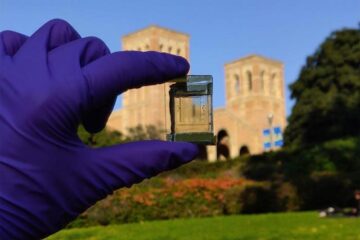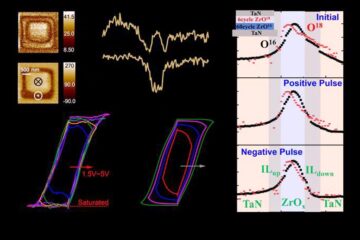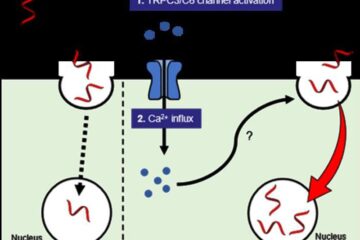New OLED encapsulation method reduces water intrusion and increases lifetime

OLEDs are promising for the next generation of displays and solid state lighting because they use less power and can be more efficiently manufactured than current technology. However, the intrusion of moisture into the displays can damage or destroy an OLED’s organic material.
“OLEDs have better color and flexibility and the capability of larger displays, but companies still need an inexpensive encapsulation method that can be used to mass produce organic electronics that don’t allow moisture in,” said Wusheng Tong, a senior research scientist at the Georgia Tech Research Institute (GTRI).
Manufacturers now seal displays in an inert atmosphere or in a vacuum environment. They glue a glass lid on top of the display substrate with a powder inside the display to absorb moisture that diffuses through the glue. These seals are expensive and labor-intensive to assemble.
With funding from GTRI’s independent research and development program, Tong and his GTRI collaborators – senior research scientist Hisham Menkara and principal research scientist Brent Wagner – have replaced the glass enclosure with a thin-film barrier formed by a less expensive conventional deposition method.
“We chose a passivation coating process that could be performed at room temperature so that the organic material remained intact,” said Tong.
The researchers selected advanced ion assisted deposition, which utilizes reactive ions to deposit a high-density, pinhole-free thin silicon oxynitride (SiON) film on the OLED surface.
“Ideally, the film should be as thin as possible, but if it’s too thin, a pinhole or other defect could appear and cause a problem,” explained Tong. “We found that a film of 50-200 nanometer thickness was perfect.”
During testing, the SiON-encapsulated OLEDs showed no sign of degradation after seven months in an open-air environment, while the OLEDs without the coating degraded completely in less than two weeks under the same conditions.
When Tong conducted accelerating aging tests in an environmental chamber that maintained a temperature of 50 degrees Celsius and 50 percent relative humidity, the OLEDs encapsulated with SiON films showed little degradation for at least two weeks. The OLEDs without encapsulation, however, decomposed immediately.
“We’ve demonstrated that this deposition process improves the lifetime of the OLEDs by blocking the intrusion of moisture, so now we’re hoping to work with industry partners to develop a mass production process for our encapsulation technique,” added Tong.
Media Contact
More Information:
http://www.gatech.eduAll latest news from the category: Life Sciences and Chemistry
Articles and reports from the Life Sciences and chemistry area deal with applied and basic research into modern biology, chemistry and human medicine.
Valuable information can be found on a range of life sciences fields including bacteriology, biochemistry, bionics, bioinformatics, biophysics, biotechnology, genetics, geobotany, human biology, marine biology, microbiology, molecular biology, cellular biology, zoology, bioinorganic chemistry, microchemistry and environmental chemistry.
Newest articles

Advance in light-based computing
…shows capabilities for future smart cameras. UCLA-developed experimental device demonstrates ability to reduce glare in images. Researchers developing the next generation of computing technology aim to bring some light to…

Evidence for reversible oxygen ion movement during electrical pulsing
…enabler of the emerging ferroelectricity in binary oxides. In a recent study published in Materials Futures, researchers have uncovered a pivotal mechanism driving the emergence of ferroelectricity in binary oxides….

Next-generation treatments hitch a ride into cancer cells
Researchers from Osaka University discover that opening a channel into cancer cells helps antisense oligonucleotide drugs reach their targets. Antisense oligonucleotides (ASOs) are next-generation drugs that can treat disease by…





















